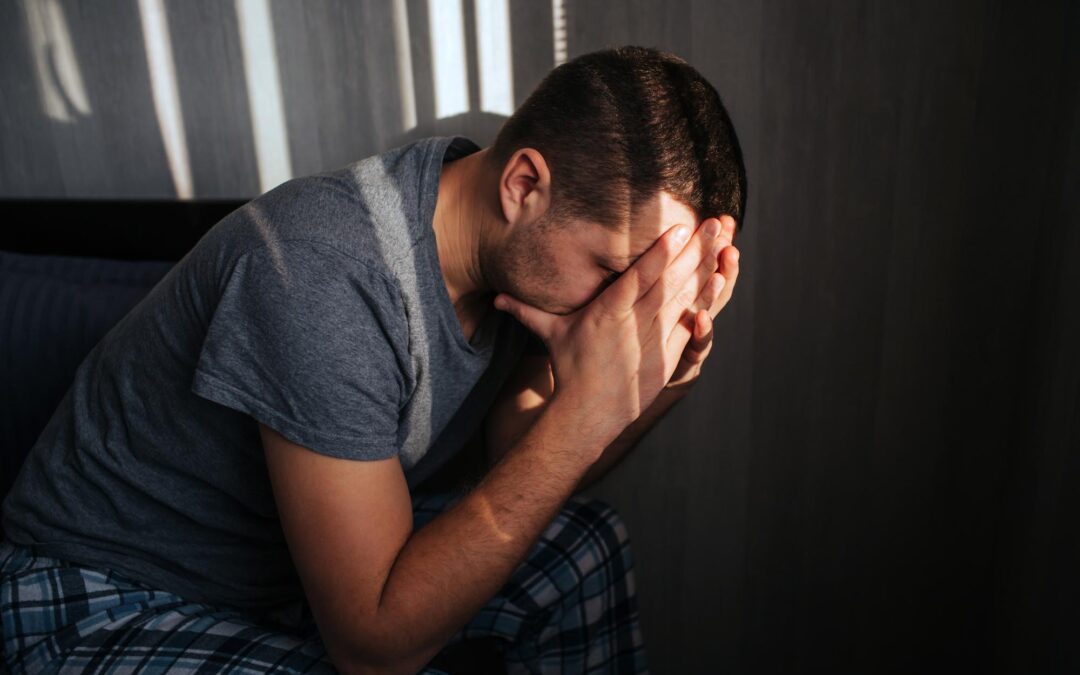Understanding Withdrawal Symptoms
Withdrawal symptoms are physical and psychological reactions that occur when you stop or reduce the use of a substance your body has become dependent on. These symptoms emerge as your body struggles to function without the substance it has adapted to having regularly in its system.
Your brain and body develop physiological dependence through repeated exposure to substances. When you consistently use drugs or alcohol, your system adjusts its natural chemical balance to accommodate the presence of these substances. Once you stop using, your body must readjust to functioning without them – triggering withdrawal symptoms.
Common substances associated with withdrawal include:
- Alcohol: Can cause severe symptoms requiring medical supervision
- Opioids: Known for intense physical discomfort and strong cravings
- Benzodiazepines: May produce dangerous symptoms if stopped abruptly
- Cocaine: Primarily causes psychological withdrawal effects
- Nicotine: Results in both physical and psychological symptoms
The severity of withdrawal symptoms varies based on:
- Length of substance use
- Amount typically consumed
- Type of substance used
- Individual health factors
- Genetic predisposition
Recognizing these symptoms is crucial for seeking appropriate medical care. Some withdrawal symptoms can be life-threatening, particularly with alcohol and benzodiazepines. Professional medical supervision ensures your safety during this challenging phase of recovery.
The Science Behind Withdrawal Symptoms
Your body has a way of keeping its internal environment stable, known as homeostasis. When you frequently use substances, your body adapts by establishing a new “normal” state that includes these chemicals.
How Your Body Adapts
The adaptation process involves changes at the cellular level:
- Your brain adjusts neurotransmitter production
- Receptor sites become less sensitive
- Neural pathways modify their functioning
- Metabolic processes shift to accommodate the substance
What Happens When You Stop Using Substances
When you stop using a substance, this artificially maintained balance is disrupted. Your body struggles to readjust, leading to withdrawal symptoms as it tries to restore its natural homeostasis.
Factors Influencing Withdrawal Severity
The severity of withdrawal symptoms is directly related to several factors:
- Duration of substance use: Longer periods of use result in deeper physiological changes
- Amount consumed: Higher doses lead to more significant bodily adaptations
- Type of substance: Different chemicals have unique effects on various body systems
Personal Factors Affecting Withdrawal Experience
In addition to the above factors, several personal elements also shape your withdrawal experience:
- Age: Older adults often experience more intense symptoms
- Physical health: Pre-existing conditions can complicate withdrawal
- Mental state: Anxiety or depression can intensify psychological symptoms
- Genetic factors: Your DNA influences how your body processes substances
- Environmental stress: High-stress situations can amplify withdrawal effects
The combination of these factors creates a unique withdrawal profile for each person. This individuality requires tailored medical attention and support during the detoxification process. Understanding these aspects can help in developing effective treatment strategies that address both the physical and psychological components of withdrawal.
Understanding Withdrawal Symptoms
Withdrawal symptoms can have a significant impact on your daily life. They involve both physical and psychological changes that can make recovery challenging.
Physical Symptoms
Physical withdrawal symptoms may include:
- Muscle tremors and uncontrollable shaking
- Intense body aches and joint pain
- Excessive sweating and temperature fluctuations
- Rapid heart rate and blood pressure changes
- Nausea and digestive disturbances
- Sleep disruptions and insomnia
Psychological Symptoms
Psychological withdrawal symptoms may include:
- Severe anxiety and panic attacks
- Deep depression and feelings of hopelessness
- Heightened irritability and mood swings
- Difficulty concentrating and mental fog
- Memory problems and confusion
Substance Cravings
Cravings for the substance you’re trying to quit can also occur during withdrawal. These cravings may involve:
- Intense urges to use the substance
- Physical reactions to substance-related triggers
- Obsessive thoughts about using
- Rationalization of substance use
- Difficulty focusing on other activities
Fluctuating Symptoms
It’s important to note that withdrawal symptoms can vary in intensity throughout the day. You might experience waves of physical discomfort followed by periods of psychological distress. Many people find that their cravings become stronger during specific times, especially when they’re stressed or exposed to situations that remind them of their substance use.
The Cycle of Withdrawal Symptoms
Understanding how these symptoms are interconnected can be helpful as you navigate your recovery journey. Physical discomfort often worsens psychological distress, while emotional turmoil can intensify physical symptoms. By recognizing this cycle, you can better prepare yourself for the challenges ahead.
Understanding Substance-Specific Withdrawal Profiles
Different substances create distinct withdrawal experiences, each with unique challenges and risks:
Alcohol Withdrawal
- Mild symptoms start 6-12 hours after the last drink
- Risk of delirium tremens (DTs) emerges 48-72 hours into withdrawal
- DTs include severe confusion, hallucinations, and seizures
- Medical supervision is essential due to potential heart complications
Opioid Withdrawal
- Physical symptoms mirror severe flu-like conditions
- Non-lethal but extremely uncomfortable
- High risk of relapse during early withdrawal
- Post-acute withdrawal can persist for months
- Heightened overdose risk if relapse occurs due to reduced tolerance
Benzodiazepine Withdrawal
- Requires careful medical tapering
- Abrupt cessation can trigger life-threatening seizures
- Symptoms include intense anxiety and panic attacks
- Withdrawal effects can last several months
- Rebound anxiety often more severe than pre-medication levels
Cocaine Withdrawal
- Primary symptoms are psychological
- Intense cravings and depression
- Fatigue and increased appetite
- Sleep disturbances and vivid dreams
- Risk of suicidal thoughts during early withdrawal
Each substance requires specific medical protocols and support strategies to ensure safe withdrawal. The severity and duration of symptoms vary based on usage patterns and individual health factors.
The Timeline of Withdrawal Symptoms: What to Expect?
Withdrawal symptoms follow a predictable pattern, though intensity and duration vary by substance. You’ll experience three distinct phases during the withdrawal timeline:
1. Initial Crash Phase (24-72 hours)
- Intense physical discomfort
- Peak symptom severity
- Heightened risk of complications
- Strong cravings
2. Plateau Phase (Days 3-7)
- Symptom stabilization
- Decreased physical symptoms
- Persistent psychological challenges
- Moderate cravings
3. Gradual Reduction Phase
- Diminishing physical symptoms
- Improved sleep patterns
- Reduced anxiety levels
- Intermittent cravings
During the gradual reduction phase, improved sleep patterns can be expected, but if you’re withdrawing from substances like sleeping pills, this could be a challenging aspect of the process due to potential withdrawal effects associated with such medications.
Substance-Specific Timelines:
Alcohol Withdrawal
- First symptoms: 6-12 hours
- Peak symptoms: 24-72 hours
- Resolution: 5-7 days
Short-Acting Opioids
- Initial symptoms: 8-24 hours
- Peak discomfort: Days 2-4
- Gradual improvement: 8-10 days
Benzodiazepines
- Early symptoms: 1-4 days
- Peak intensity: Days 5-7
- Full resolution: Up to 2 weeks
These timelines serve as general guidelines – your personal experience might differ based on usage patterns, health status, and individual factors. Medical supervision ensures safe navigation through each phase of the withdrawal process.
Professional Help is Key: Medical Detoxification and Management Strategies
Medical detoxification requires professional supervision to ensure safety and comfort during withdrawal. You’ll receive 24/7 monitoring from healthcare professionals who can respond immediately to any complications.
Common medications used in medical detox include:
- Opioid withdrawal management:
- Clonidine to reduce anxiety and physical symptoms
- Lofexidine for managing withdrawal discomfort
- Buprenorphine or methadone as MAT options
- Alcohol/sedative detox support:
- Benzodiazepines to prevent seizures
- Anticonvulsant medications
- Vitamin B1 supplementation
Medical teams customize treatment plans based on:
- Your substance use history
- Current health status
- Presence of co-occurring conditions
- Severity of dependence
Supportive care during detox includes:
- Vital sign monitoring
- Fluid replacement therapy
- Nutritional support
- Pain management
- Sleep assistance
These medical interventions significantly reduce withdrawal discomfort and prevent potentially dangerous complications.
Beyond Detox: The Role of Behavioral Therapies and Aftercare Support
Successful recovery extends far beyond the detoxification phase. Individual therapy sessions create a safe space for you to explore underlying triggers and develop personalized coping mechanisms. Group therapy adds another layer of healing through shared experiences and peer support.
Key therapeutic approaches include:
- Cognitive Behavioral Therapy (CBT) to identify and modify negative thought patterns
- Stress management techniques to handle daily pressures
- Mindfulness practices for emotional regulation
- Relapse prevention strategies tailored to your specific needs
A robust aftercare plan strengthens your recovery foundation. Alumni groups provide ongoing connection with others who understand your journey. Regular wellness activities help maintain physical and mental balance:
- Yoga and meditation sessions
- Fitness programs
- Nutrition counseling
- Art therapy workshops
These structured support systems help you build resilience against withdrawal symptoms and create healthy lifestyle patterns. Your recovery journey benefits from consistent engagement with therapeutic resources and a supportive community of peers. Incorporating holistic rehabilitation programs into your aftercare plan can further enhance recovery outcomes by addressing the whole person, not just the addiction.
Staying Safe During Withdrawal: Risks and Precautions
Attempting to quit substances without medical supervision can lead to severe, life-threatening complications. This is particularly critical for individuals dependent on alcohol or benzodiazepines, where sudden cessation can trigger:
- Seizures
- Severe hallucinations
- Dangerous blood pressure spikes
- Heart complications
- Delirium tremens (DTs)
Safe withdrawal requires a structured approach under professional guidance. Medical experts can:
- Monitor vital signs 24/7
- Administer appropriate medications
- Adjust treatment based on symptom severity
- Respond immediately to emergencies
Key strategies to prevent relapse during withdrawal:
- Remove substance access and triggers from your environment
- Create a support network of trusted family and friends
- Maintain regular sleep patterns
- Stay hydrated and maintain proper nutrition
- Practice stress-reduction techniques
- Follow prescribed medication schedules precisely
- Attend all scheduled therapy sessions
Medical supervision transforms a potentially dangerous withdrawal into a controlled, manageable process. Your safety depends on professional guidance through each stage of detoxification.
Insight Recovery Treatment Center’s Approach to Withdrawal Management
At the Insight Recovery Treatment Center in Massachusetts, we deliver personalized addiction treatment through comprehensive, evidence-based protocols. Our medical team creates individualized treatment plans based on your specific substance dependency, medical history, and personal circumstances.
Core Treatment Components:
- Medical detoxification with 24/7 monitoring
- Medication-assisted treatment (MAT) when appropriate, following the latest guidelines
- Individual therapy sessions with licensed counselors
- Group therapy focusing on coping skills and peer support
- Cognitive Behavioral Therapy (CBT) to address underlying triggers
Your treatment plan adapts as you progress through withdrawal and recovery. Our medical staff adjusts medication protocols daily, while maintaining strict safety standards. The combination of medical supervision and therapeutic support creates a stable environment for managing withdrawal symptoms.
Specialized Programs:
- Alcohol detoxification with seizure prevention protocols
- Opioid withdrawal management using buprenorphine or methadone as part of our Medication-assisted treatment
- Benzodiazepine tapering programs
- Cocaine withdrawal support with emphasis on psychological care
The integration of medical and therapeutic approaches allows us to address both physical and emotional aspects of withdrawal simultaneously. Furthermore, our approach extends beyond immediate withdrawal management. We also focus on long-term recovery solutions such as sober living and outpatient rehab, which provide the necessary structure for lasting addiction recovery.
Seeking Help for Safe Withdrawal Management
Breaking free from substance dependency requires courage, and you don’t have to face withdrawal symptoms alone. At Insight Recovery Treatment Center, our experienced team stands ready to guide you through each step of your recovery journey.
Your path to recovery starts with a simple phone call to (781) 653-6598 or by visiting our contact page. Our compassionate staff will:
- Create a personalized treatment plan tailored to your needs
- Provide medical supervision to ensure your safety during withdrawal
- Offer emotional support through individual and group therapy sessions
- Help you develop essential coping strategies for long-term success
We specialize in various types of substance dependencies. Whether you’re struggling with opioids, alcohol, or cocaine, we have the resources and expertise to assist you.
Your future holds hope and possibilities. Many individuals have successfully navigated withdrawal symptoms under our care, emerging stronger and healthier. The support system at Insight Recovery Treatment Center remains committed to your well-being, from your first day of treatment through your ongoing recovery journey.
Take the first step toward reclaiming your life – reach out to us today. Your path to healing awaits.






